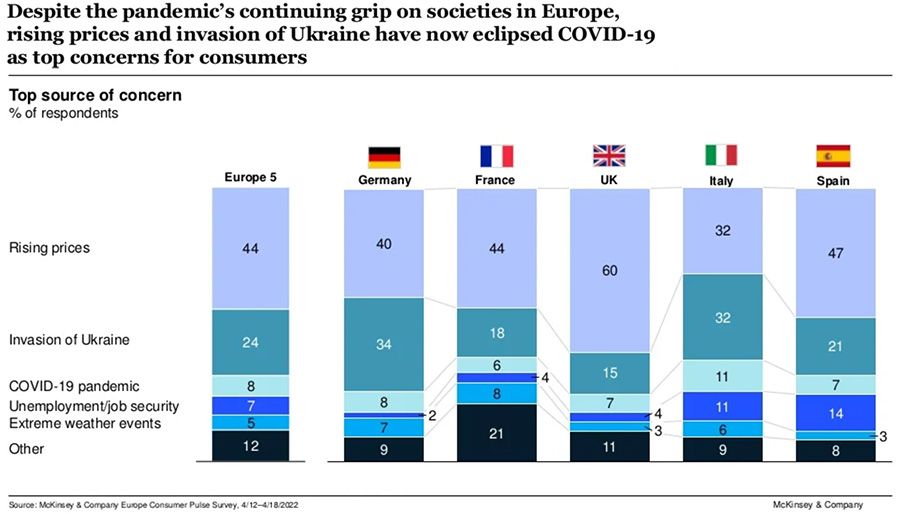The results of the latest European Consumer Pulse by McKinsey & Company show that 35% of British consumers now believe the UK will see economic regression or a lengthy recession. This has seen the lack of confidence in the UK’s economic recovery more-than-double since October 2021, when economic pessimism was at 17% – and even worse than at the start of the pandemic in March 2020, when it stood at 30%.

With things shaping up as they are, it is not hard to see why that has happened. Wages remain stagnant, and spiralling costs of energy and supermarket essentials mean pay for most consumers is spread thinner than ever before. At the same time, the number of firms collapsing as they pay back pandemic debt is growing, suggesting the present high rate of employment may not last that much longer.
Amid all this, while the pandemic and the prospect of global war are on the radar, most UK consumers say their biggest concern is the cost of living. Six in ten say as much – 45 points higher than the number who cite the invasion of Ukraine as a top concern, while Covid-19 is even further behind at 7%.
McKinsey found that many expect the situation to get worse before it gets better, too. The strongest perception of price increases was in groceries – with 92% of UK consumers stating as much – and 71% believed prices would continue to rise in the next 12 months. In response, many are tightening their belts, in a move that will have grave implications for the wider economy. With spending power stifled, 44% of UK consumers plan to spend less in quick-service restaurants, restaurants, and on food takeout and delivery – something that threatens to further batter a hospitality industry that has struggled to bounce back from the pandemic.
Comparatively, UK consumers are some of the most pessimistic in Europe at present. While the negative outlook is the higher in Spain at 67%, and Italy at 63%, the UK’s 61% overall ‘negative’ view surpasses both France at 58%, and Germany at 55%. Among those countries, the UK was by far the most pessimistic about rising prices and inflation.
Depending on who you ask, the situation may be quantifiably worse for many UK residents, too. The CPI’s rate of inflation has been widely discussed in the past months, with critics noting that the model does not illustrate how inflation impacts people with lower incomes disproportionately more heavily. Food poverty campaigner Jack Monroe, for example, noted in March that the price of many necessities relied upon by consumers with the lowest incomes had risen by over 300% in a year.




